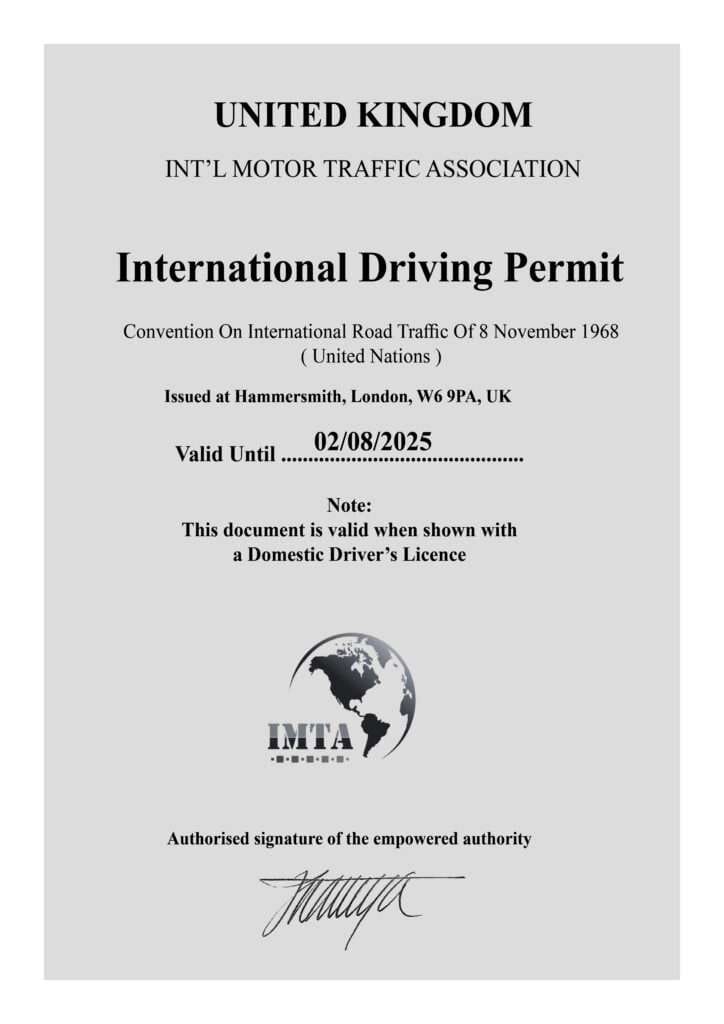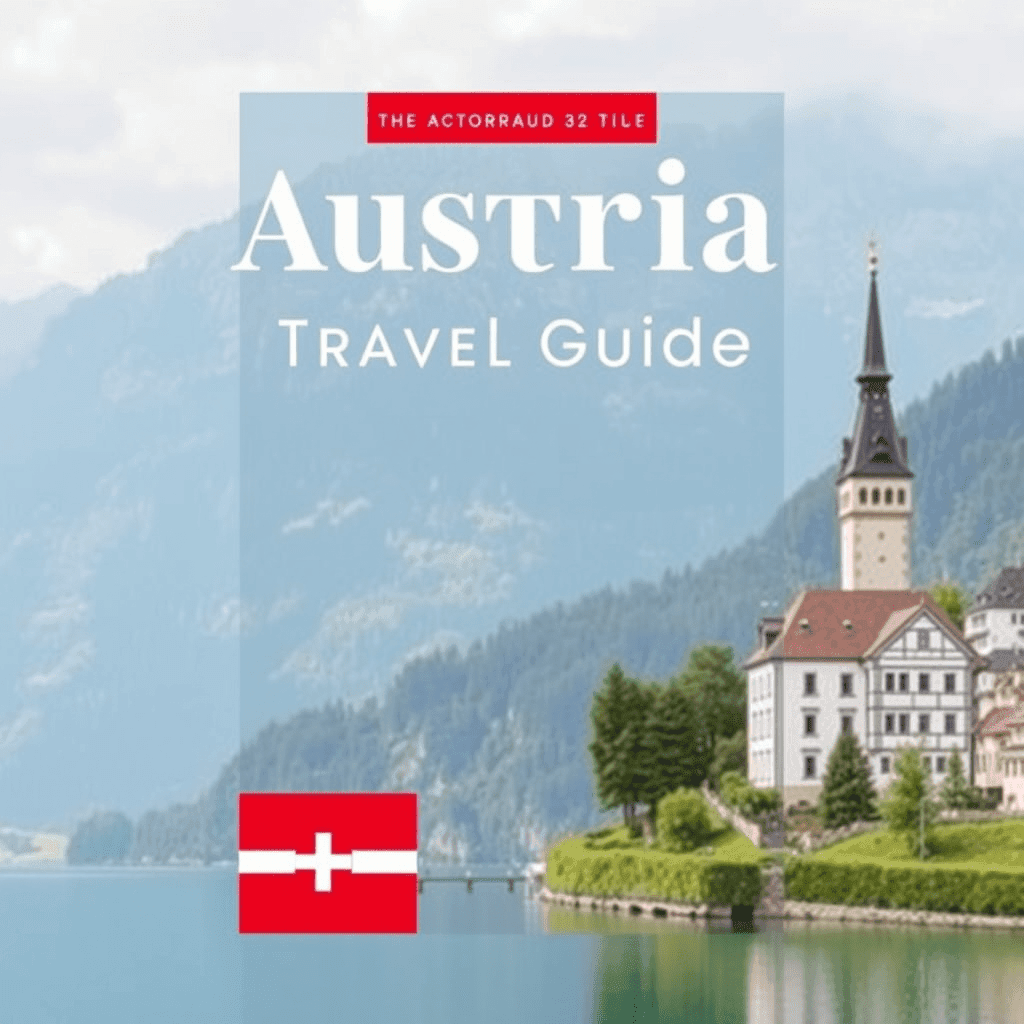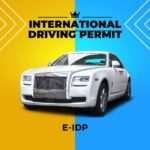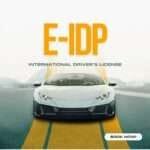Austria travel guide, Austria International Driving Permit, international driver’s license Austria, international driver’s permit Austria, international driver’s licence Austria, international licence permit Austria. Austria is truly a captivating land, filled with majestic alpine landscapes, rich culture, and a fascinating history. From its stunning natural beauty to its vibrant cities and deep appreciation for music and art, Austria offers something for every traveler. Whether you’re into skiing, exploring palaces, or immersing yourself in classical music, this beautiful country has it all. Below is a comprehensive travel guide to assist you in planning your visit to Austria.
- Getting to Austria
– By Air: The primary international gateway to Austria is Vienna International Airport (VIE), although Salzburg (SZG) and Innsbruck (INN) are also well-connected to European cities.
– By Train: Austria is seamlessly integrated into Europe’s efficient rail network, with high-speed trains linking it to neighboring countries such as Germany, Switzerland, Italy, and Hungary.
– By Car: Austria is easily accessible by road from neighboring countries, boasting excellent road networks. The country’s scenic drives, particularly through the Alps, are a major highlight.
– By Bus: FlixBus and other international bus services operate routes to Austria from various European cities, offering an economical mode of travel. Austria travel guide, Austria International Driving Permit, international driver’s license Austria, international driver’s permit Austria, international driver’s licence Austria, international licence permit Austria
- Best Time to Visit
– Spring (April to June): Spring in Austria brings forth blooming flowers and mild weather, making it an ideal time for city exploration and outdoor activities.
– Summer (July to August): This season is perfect for savoring Austria’s lakes, hiking trails, and outdoor festivals. It’s also the peak tourist season, particularly in cities like Vienna and Salzburg.
– Autumn (September to October): Autumn offers cooler temperatures, stunning fall foliage, and fewer tourists, making it an excellent time to visit. This season also brings wine festivals and culinary events.
– Winter (November to March): Winter in Austria is synonymous with skiing and Christmas markets. The Alpine regions, including Tirol and Vorarlberg, are renowned for winter sports, while Vienna and Salzburg exude a magical charm during the holiday season. Austria travel guide, Austria International Driving Permit, international driver’s license Austria, international driver’s permit Austria, international driver’s licence Austria, international licence permit Austria
- Top Destinations
– Vienna: The capital city, Vienna, is a melting pot of culture, music, and history. Unmissable attractions include Schönbrunn Palace, the Hofburg, St. Stephen’s Cathedral, and the Vienna State Opera. Don’t forget to experience the historic coffeehouses and visit the iconic Ferris wheel in Prater park.
– Salzburg: Known as the birthplace of Mozart, Salzburg is famed for its baroque architecture, music festivals, and the magnificent Hohensalzburg Fortress. The city’s Old Town is a UNESCO World Heritage site, and fans of “The Sound of Music” can explore filming locations.
– Innsbruck: Nestled amidst the Alps, Innsbruck is a paradise for winter sports enthusiasts. The city itself boasts a charming old town, the Golden Roof, and the Imperial Palace. The nearby Nordkette mountain range offers breathtaking views and a plethora of outdoor activities.
– Hallstatt: Widely regarded as one of the most beautiful villages in the world, Hallstatt is renowned for its picturesque setting by a serene lake. Austria travel guide, Austria International Driving Permit, international driver’s license Austria, international driver’s permit Austria, international driver’s licence Austria, international licence permit Austria
- Cultural Experiences
Classical Music: If you’re a fan of classical music, Austria is the perfect place for you. You can attend a classical concert in Vienna, visit Mozart’s birthplace in Salzburg, or immerse yourself in the grandeur of the Vienna State Opera.
Viennese Coffeehouses: Don’t miss out on experiencing the traditional Viennese coffeehouse culture. Sit back, relax, and savor delicious coffee and pastries like Sachertorte or Apfelstrudel while taking in the rich history and atmosphere of these iconic establishments.
Festivals: Throughout the year, Austria hosts a variety of cultural festivals such as the Salzburg Festival, the Vienna Opera Ball, and the Bregenz Festival. These events offer a glimpse into the country’s vibrant musical and artistic heritage.
Christmas Markets: Immerse yourself in the magical atmosphere of Austria’s Christmas markets, especially in Vienna, Salzburg, and Innsbruck. Here, you can indulge in mulled wine, gingerbread, and handmade crafts, all while enjoying the festive ambiance. Austria travel guide, Austria International Driving Permit, international driver’s license Austria, international driver’s permit Austria, international driver’s licence Austria, international licence permit Austria
- Outdoor Activities
Skiing and Snowboarding: With top-notch ski resorts like St. Anton, Kitzbühel, and Zell am See, Austria is a premier destination for winter sports enthusiasts of all levels.
Hiking and Cycling: The diverse landscapes of Austria offer endless opportunities for hiking and cycling. Whether you prefer alpine trails, rolling hills, or scenic lakesides, Austria has it all.
Water Sports: If you love water activities, Austria’s lakes, such as Wolfgangsee and Hallstätter See in the Salzkammergut region, are perfect for swimming, sailing, and kayaking during the summer months.
Paragliding and Mountaineering: Adventure seekers will find thrills in the Austrian Alps through paragliding experiences and challenging mountaineering routes, complemented by breathtaking views at every turn.
- Practical Information
Currency: The official currency is the Euro (EUR), and while credit cards are widely accepted, it’s advisable to have some cash on hand, especially in rural areas and for small purchases.
Language: German is the official language, but English is commonly spoken in tourist areas. Learning a few basic German phrases can be helpful for a smoother experience.
Transport: Austria boasts an excellent public transport system, including trains, buses, and trams. The ÖBB (Austrian Federal Railways) provides extensive connections throughout the country. Renting a car is also a great option for exploring the countryside and alpine regions.
Connectivity: Wi-Fi is readily available in hotels, cafes, and public spaces. You can easily purchase SIM cards with data plans at airports or local shops for seamless connectivity.
Safety: Austria is known for being a very safe country for travelers, with low crime rates. However, it’s always wise to practice standard precautions, especially safeguarding your belongings in crowded areas.
- Etiquette and Customs
When visiting Austria, it’s important to be mindful of the local etiquette and customs:
– Greetings: Austrians appreciate politeness and formality when greeting others. A firm handshake accompanied by eye contact is the customary way to greet. Upon entering a shop or restaurant, it is polite to use “Grüß Gott” (Good day) or “Hallo” (Hello) as a greeting.
– Punctuality: Punctuality is highly valued in Austrian culture. Whether it’s for appointments, meetings, or public transport, being on time is significant.
– Dining: Tipping is customary in restaurants, usually around 5-10% of the bill. When settling the bill, it’s customary to inform the server of the total amount you intend to pay, including the tip. Additionally, it’s polite to say “Mahlzeit” (Enjoy your meal) before beginning to eat.
– Environmental Awareness: Austria is recognized for its environmental consciousness. Recycling is widely practiced, and there are stringent regulations concerning littering and waste disposal.
- Health and Safety
When it comes to health and safety in Austria, here are some important considerations:
– Healthcare: Austria boasts a high standard of healthcare. EU citizens can utilize their European Health Insurance Card (EHIC) for medical treatment. Non-EU visitors are advised to have travel insurance that covers medical care.
– Vaccinations: No specific vaccinations are necessary for travel to Austria, but it’s essential to ensure that routine vaccinations are up to date.
– Water: Throughout Austria, tap water is safe to drink. While hiking, it’s common to refill water bottles from alpine springs.
- Travel Tips
For a smooth travel experience in Austria, keep in mind the following tips:
– Visa: Austria is part of the Schengen Area, allowing citizens of EU/EEA countries, as well as many others like the U.S., Canada, and Australia, to enter visa-free for short stays. It’s important to check visa requirements before traveling.
– Public Holidays: Austria observes several public holidays, such as National Day (October 26), Christmas, and Easter. On these days, some businesses and attractions may have reduced hours or be closed.
– Power Plugs: Austria utilizes Type C and Type F power plugs with a standard voltage of 230V. Visitors from countries with different plug types should bring an adapter.
Austria is a country that seamlessly combines breathtaking natural landscapes with culturally enriching experiences. Whether you’re delving into its historic cities, skiing in the majestic Alps, or enjoying classical music, Austria promises a diverse and captivating travel experience. With its welcoming locals, well-preserved heritage, and stunning scenery, Austria is certain to create a lasting impact on every traveler.
When traveling abroad, it’s essential to have an International Driving Permit (IDP) from IMTA (International Motor Traffic Association) to complement your regular driver’s license. The IDP translates your license into 15 different languages, making it easier for officials in foreign countries to understand. It’s important to note that the IDP is recognized in countries that have signed onto the 1949 or 1968 UN Conventions. Additionally, various bilateral treaties and agreements regulate the requirements for IDPs in different countries, so having the IMTA International drivers license is crucial when traveling internationally. Apply For International Driving Permit For £35 Only. Get Your Online Int’l Driving License for the United Kingdom. Get Your Online Int’l Driving Licence for the United Kingdom
Applying for an IMTA international driving permit is convenient as it can be done from anywhere in the world.
Apply here and Get your IDP Fast
https://www.e-idp.co.uk/international-driving-license-application/
What you need to rent a car, and how to rent one
As a tourist, you’ll most likely be renting a car (more on that in a bit) for your road trip. Even so, there are certain requirements that you’ll have to check off before you get into it.
- You have to get an International Driver’s Permit. Apply for it online or head to the office — we prefer doing it in person because the queue is pretty short during off-peak hours, and you can get it done on the same day. It’ll cost S$20 and is valid for one year from the date of issue.
- A valid local driver’s license. international driving licence online
- You have to be at least 21 years of age and have held your local licence for a year. A surcharge may be imposed for drivers under the age of 25.
- A passport for identification .
- A credit card in the driver’s name.
How to obtain an international driving permit

The process of obtaining an international driving license directly from an office can be quite challenging and time-consuming. The payment methods involved can also be complex. Therefore, it is recommended to consider applying for an international driving license from IMTA. The application process only takes around 10 to 15 minutes, making it a more efficient option for getting your international driving permit Get Your Online Int’l Driving Permit for the United Kingdom
The necessary details required for the application of an International driving permit include:
– Full Name
– Email & Phone Number
– Current Address
– Place of Birth
– National Driver’s License Number
– National Driver’s License Issued Date & Expiry Date
– Picture of Driver’s License & Your Head Shot Photo for Your IDP






